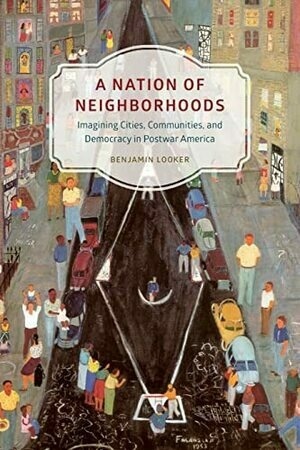
Benjamin Looker investigates the cultural, social, and economic complexities of the idea of neighborhood in postwar America. In the face of urban decline, competing visions of the city neighborhood s significance and purpose became proxies for broader debates over the meaning and limits of American democracy. Looker examines radically different neighborhood visions by urban artists, critics, writers, and activists to show how sociological debates over what neighborhood values resonated in art, political discourse, and popular culture. The neighborhood- both the epitome of urban life and, in its insularity, an escape from it was where twentieth-century urban Americans worked out solutions to tensions between atomization or overcrowding, harsh segregation or stifling statism, ethnic assimilation or cultural fragmentation."